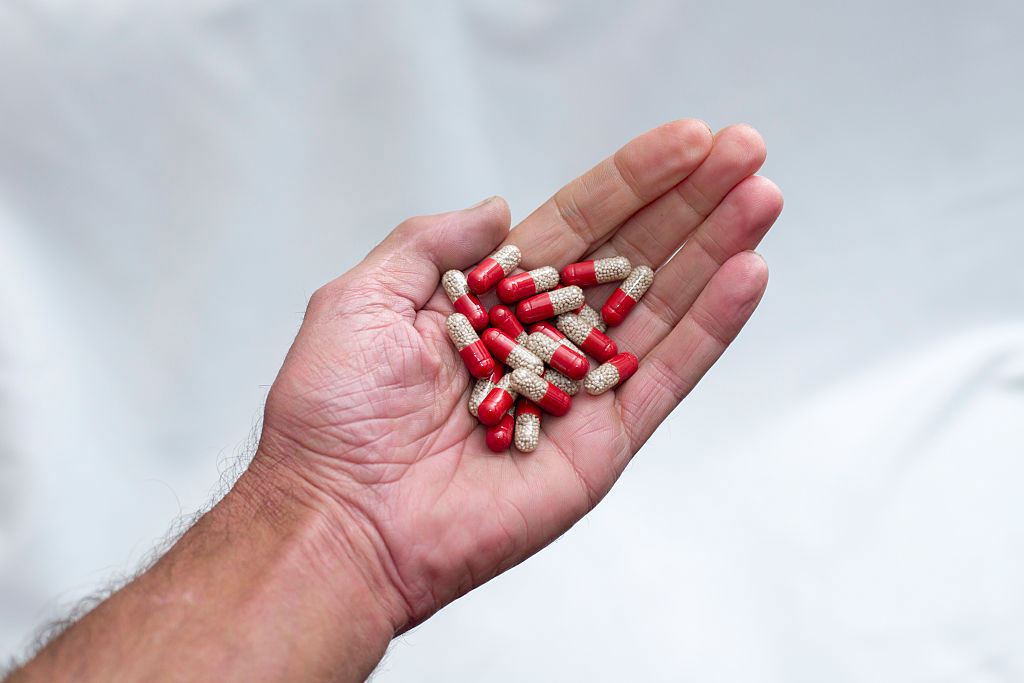Side Effects of Antibiotics

Few who think they have allergies to antibiotics actually are when tested. If you had an allergic reaction to an antibiotic or suffer side effects of antibiotics, talk to your doctor.
Faith Berger told all of her doctors that she was allergic to penicillin. In truth, it was her mother who broke out in a rash from the antibiotic, not her. She just assumed that because her mom was allergic, she would be, too.
“Only 10 percent of people who self-report a penicillin allergy actually wind up being allergic when tested,” said Gary C. Pien, MD, PhD, and director of research of the allergy/immunology department at Summit Medical Group in Berkeley Heights, N.J.
Pien says patients can be tested to see if they are allergic to penicillin. “Unfortunately, testing is more limited for other types of antibiotics,” he said. “If a patient believes they have antibiotic allergies, I would recommend they discuss it with their physician or an allergist to find out if they really are allergic.”
YOU MIGHT ALSO LIKE: Allergies to Wine
Side effects of antibiotics
Being allergic to penicillin can cause a slight rash. It can also have a more life-threatening effect, such as lowering your blood pressure to the point of where you can lose consciousness.
If you believe you experience side effects of antibiotics, an allergist can do a simple skin test for penicillin. Penicillin is the only antibiotic with a skin test to see if you have an allergy. Similar tests are not available for other antibiotics.
Berger’s doctor recommended that she get tested. “He really wanted me to take penicillin for my illness,” she said. “I took the allergy test and found out that I wasn’t allergic. I was really surprised.”
It’s important to note that allergies to antibiotics change. Beth Selig used to have allergic reactions to penicillin. “As a child, I got a bad rash from it,” she said. Twenty years later, she needed penicillin. When she told her doctor about her childhood allergy, he told her to take an allergy skin test because over time allergies to antibiotics change. She took the test at her doctor’s insistence and found out that she was no longer allergic to penicillin.
Symptoms of antibiotic allergy
- Shortness of breath
- Rash or hives and excessive itching
- Swelling of your lips, face, or tongue
- Fainting
- Vomiting
- Severe abdominal cramps and diarrhea
Anaphylaxis symptoms are the most severe allergic reactions to antibiotics. It’s life-threatening and needs immediate treatment.
Symptoms of anaphylaxis
- Tightness of the throat
- Trouble breathing
- Dizziness and wheezing
- Passing out
- Drop in blood pressure
- Weakness
- Blurred vision
- Loss of consciousness
It’s important to note that allergic reactions occur pretty quickly after taking the antibiotic. Side effects of antibiotics can last as short as 10 minutes or as long as two hours. If you have any of the above symptoms a few days after taking an antibiotic, you probably aren’t allergic to it. Reactions to antibiotics that show up a few days after taking the medications are often side effects.
Before prescribing any antibiotic, your doctor will ask you about your medical history and will want to know what other drugs you are taking because antibiotics can have negative interactions with other medications.
If you had an allergic reaction to an antibiotic in the past, talk to your doctor. If it’s available, he will prescribe a similar medication. “If the patient is ill and needs an antibiotic right away,” Pien said, “the best advice is to avoid the suspected drug and choose an unrelated antibiotic from a different family.”
If you need to take a specific drug that you’re allergic to and there are no suitable alternatives, you’ll have to go through drug desensitization. Under a doctor’s care, you’ll be given small amounts of the antibiotic, and the dosage will increase over time. A number of patients experience this with chemotherapy. They often go through desensitization a second time if they need to take the drug again.
The bottom line concerning allergies to antibiotics is to talk to your physician. Together you both will find a solution.
Updated:
March 03, 2020
Reviewed By:
Janet O’Dell, RN